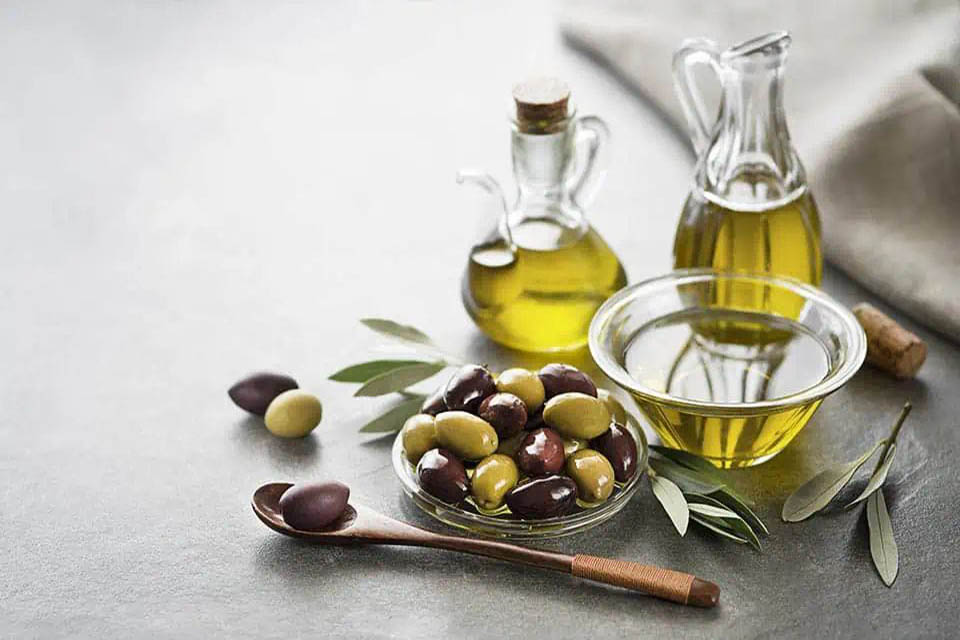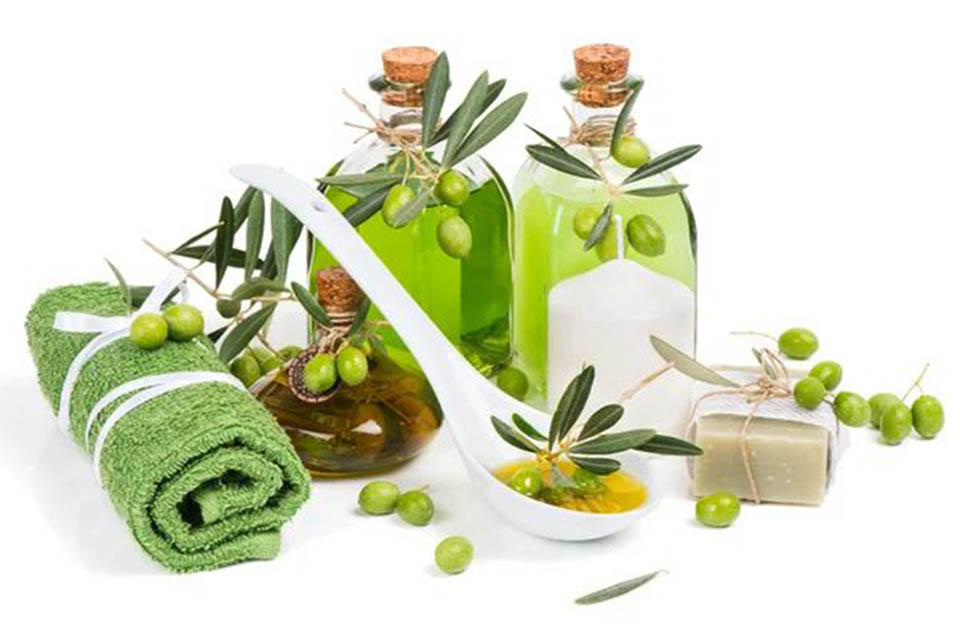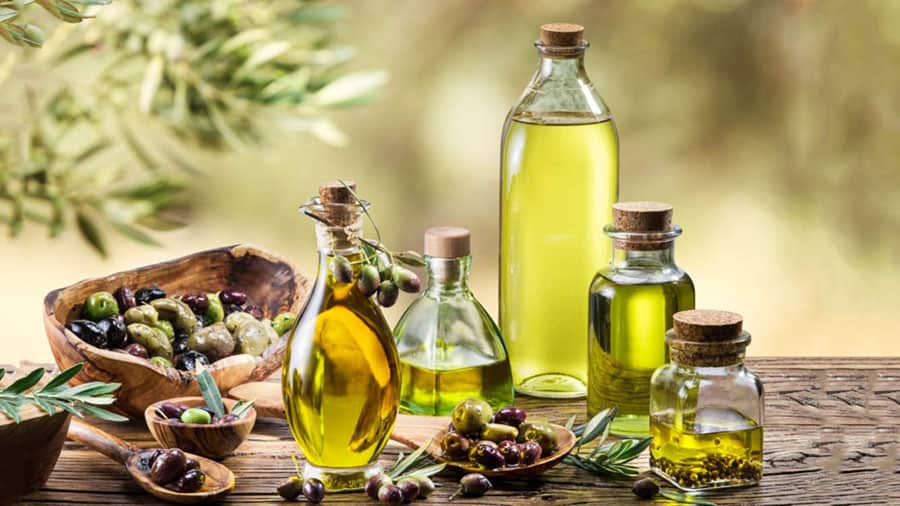How to store olive oil – tips for correct storage of olive oil
Tips for how to store your olive oil

Correct storage of olive oil
Storing olive oil properly is important to maintain its quality and prevent it from becoming rancid. To keep olive oil fresh for an extended period, it’s crucial to take specific steps to minimize factors that contribute to the deterioration of your olive oil.
Here are some tips on how to store olive oil:
Keep it in a Cool, Dark Place: exposure to heat and light can accelerate the oxidation process and degrade the quality of olive oil. Store it in a cool, dark place, away from direct sunlight and heat sources.
Choose a Tinted Bottle: when purchasing olive oil, choose a bottle that is tinted or dark in color. This helps to protect the oil from light exposure. Ideally use dark glass bottles, choose olive oil packaged in dark glass bottles or containers to protect it from light exposure. Light can cause the oil to oxidize and degrade. Keep the bottle upright, storing the bottle upright helps minimize the surface area exposed to air, reducing the risk of oxidation.
Seal the Container Tightly: make sure the bottle or container is tightly sealed to prevent air from entering. Oxygen can contribute to the oxidation of the oil.
Avoid Temperature Fluctuations: try to avoid sudden temperature changes. Olive oil is best stored at a consistent temperature. Fluctuations in temperature can lead to condensation inside the bottle, which may promote the growth of mold and bacteria.
Keep Away from Air and Moisture: exposure to air and moisture can lead to the rancidity of olive oil. Keep the olive oil bottle tightly sealed when not in use, and avoid transferring it to containers that allow air to enter.
Use a Dispenser with a Pour Spout: if you frequently use olive oil, consider using a dispenser with a pour spout. This can help minimize the exposure to air each time you use the oil.
Check the Expiry Date: olive oil has a shelf life, and it’s preferred to consume olive oil before the expiry date. Consuming olive oil past its prime may result in a less flavorful and potentially rancid product. Olive oil does not expire, but by the time it slowly looses its rich flavor and its fabulous healthy ingredients (see: Olive Oil Ingredients), therefore its ideal when its used before it degrades. Freshness of the olive oil its a plus for enjoying the full flavor and health benefits of olive oil. For more info on how long olive oil lasts visit our page “How long lasts a bottle of extra virgin olive oil?” (don’t worry, consuming “expired” olive oil will not be bad for your health and won’t make you ill, or unwell)
Store Away from Strong Odors: olive oil can absorb odors from the environment, affecting its taste. Store it away from strong-smelling substances like spices, garlic, and onions.
You should not keep any type of olive oil in any type of plastic containers: avoid storing olive oil in reactive metal containers (e.g. copper or iron) as chemical reaction between the olive oil and the metal will damage the oil and may produce toxins. Olive oil should not be stored in any type of plastic containers as the oil may absorb PVCs from the plastic.
What is the best material to store olive oil? the best containers for all types of olive oils is glass (dark glass, tinted glass), ceramic, porcelain, or storage containers made with non-reactive metals such as stainless steel.
By following these storage tips, you can help preserve the quality and flavor of your olive oil for a longer period.
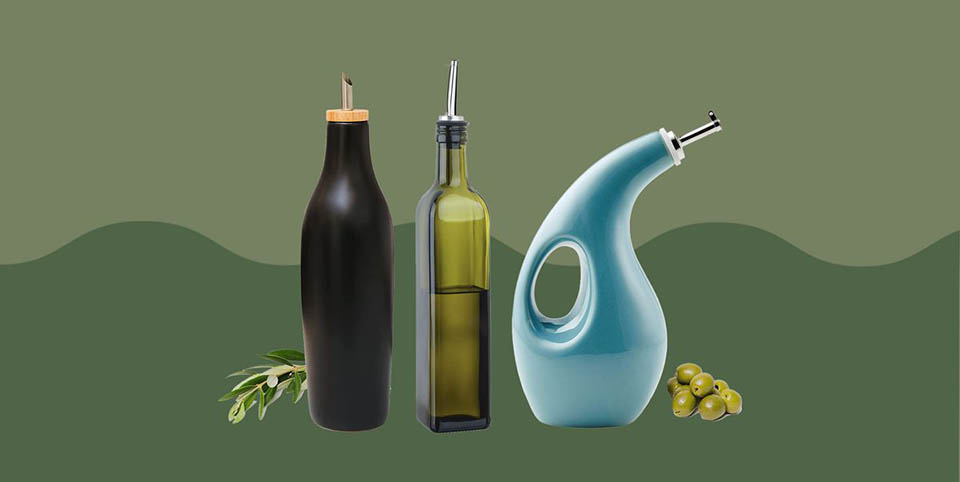
How to keep your olive oil fresh
Some additional tips to help you keep your olive oil fresh:
Buy High-Quality Olive Oil: start with a premium-quality olive oil. Extra virgin olive oil is the highest quality olive oil and has the best flavor profile.
Check Harvest Date when you buy olive oil: look for the harvest date of the olive oil on the label. Fresher olive oil is likely to have a better flavor and nutritional profile. Try to use the oil within 12 to 18 months of the harvest date.
Purchase in Small Quantities: consider buying smaller bottles of olive oil to ensure that you use it within a reasonable timeframe. This helps to minimize the time the oil is exposed to air and light.
Seal the Container Properly: ensure that the bottle or container is tightly sealed after each use. This helps prevent air from getting inside, which can lead olive oil to oxidation.
Keep Away from Heat Sources: store olive oil away from heat sources such as stovetops, ovens, and other appliances. Elevated temperatures can speed up the degradation process.
Avoid Refrigeration: olive oil can solidify and become cloudy when refrigerated, but this doesn’t harm the oil. However, storing it in the refrigerator is not necessary and can alter its flavor and texture. It’s best to store olive oil at (a cool) room temperature.
Use Clean Utensils: when using olive oil, make sure to use clean utensils or pour spouts to prevent introducing contaminants that can spoil the oil.
– – –
Remember that olive oil is sensitive to air, light, and heat.
Correct olive oil storage tips on a video
Learn how to store olive oil properly in order to maintain its quality. The most important things to do to store your olive oil right. Most olive oils that are stored properly will keep in optimal condition for at least 1 ½ to 2 years.
For more information on olive oil, visit our blog at https://critida.com/blog/
Scientific research & articles related to Olive Oil Storage:
The Effect of Storage Conditions on EVOO quality – Olive Oil Storage
A study done to determine the effect of storage conditions, including storage temperature, exposure to oxygen and exposure to light on the oxidative stability and quality of olive oil. Controlled environment storage is generally difficult to maintain by many olive oil producers, with olive oil often stored in totally inappropriate settings such as sheds or other convenient locations. Often the storage temperature is high, or there are problems with exposure to light or oxygen which quickly reduces the quality of the oil. This report shows the importance of controlling the temperature, exposure to light and exposure to oxygen on the quality of oil. Olive oil passes through many situations during the supply chain from the olive oil producers to olive oil wholesalers to exporters, importers, retailers and consumers. At each of these stages there is a responsibility to maintain the appropriate storage conditions to maintain the quality of the olive oil. (AUSTRALIAN GOV – RIRDC)
Evolution of Extra Virgin Olive Oil Quality under Different Storage Conditions
The extent and conditions of storage may affect the stability and quality of extra virgin olive oil (EVOO). This study aimed at evaluating the effects of different storage conditions (ambient, 4 °C and −18 °C temperatures, and argon headspace) on three EVOOs (low, medium, and high phenols) over 18 and 36 months, analyzing the main metabolites at six time points. The results showed that low temperatures are able to maintain all three EVOOs within the legal limits established by the current EU regulations for most compounds up to 36 months. Oleocanthal, squalene, and total phenols in olive oil were affected by storage temperatures more than other compounds and degradation of squalene and α-tocopherol was inhibited only by low temperatures. The best temperature for 3-year conservation was 4 °C, but −18 °C represented the optimum temperature to preserve the organoleptic properties. The present study provided new insights that should guide EVOO manufacturers and traders to apply the most efficient storage methods to maintain the characteristics of the freshly extracted olive oils for a long conservation time. (NATIONAL LIBRARY OF MEDICINE)
The effects of packaging and storage temperature on the shelf-life of extra virgin olive oil
Another research that aimed to study the effects of packaging and storage temperature on the shelf-life of extra virgin olive oil (EVOO) as it can occur in most points of sale. (SCIENCEDIRECT)
Storage of extra virgin olive oil and its effect on the biological activity and concentration of oleocanthal
The olive oil phenolic, oleocanthal, has recently received attention regarding its anti-inflammatory capacity and the thought that it is partially responsible for the beneficial health effects of extra virgin olive oil in particular. Extra virgin olive oil (EVOO) containing oleocanthal is often consumed after storage for a substantial amount of time and for oleocanthal to indeed provide health benefits, it has to be present in a substantial quantity throughout the shelf-life of EVOO. Therefore, the aim of the current study was to investigate if natural light and/or oxygen (O2) exposure (via atmospheric air) combined with extended storage, as would occur on a common domestic basis, affected the concentration of oleocanthal in EVOO. (SCIENCEDIRECT)
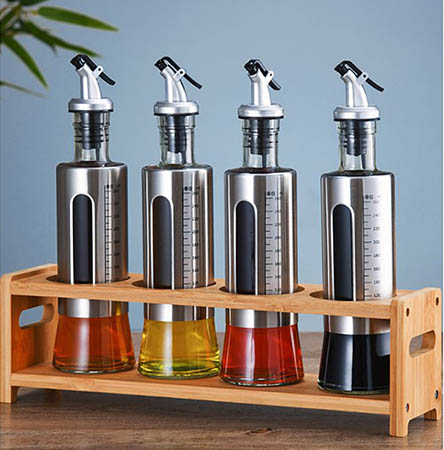
Additional informational articles on olive oil:
–
Olive Oil Properties, Ingredients and Types of Olive Oil
–
Frying with olive oil
–
The benefits of olive oil to human health
–
The best olive oil dispensers that keep olive oil fresh
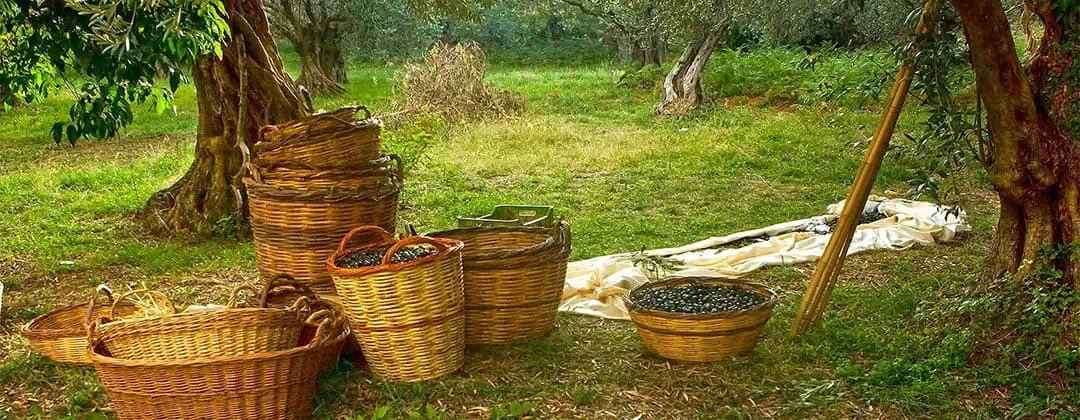
CRITIDA BIO CRETAN OLIVE OIL - Producers of Premium Cretan Culinary Products: Our Food Products are EXPORTED WORLDWIDE to 40+ countries, since 1998 - Join Us!
We are a centuries-long family company (est 1912) in the production of EVOO Olive Oil on the island of CRETE in GREECE. Our Premium Cretan extra virgin olive oil and culinary food products are exported in 40+ countries worldwide to a carefully selected network of partners. CONTACT US, BE OUR NEXT VALUED BUSINESS PARTNER ! for Extra Virgin Olive Oil (EVOO) - Organic (Bio) Extra Virgin Olive Oil (Organic EVOO) - Greek Table Olives - Balsamic Vinegars - Delicatessen, all from CRETE GREECE
Related posts
How to Use Olive Oil for Hair Care – the benefits
Use of olive oil for hair care Olive oil for hair care: How to use and possible benefits Olive oil i
Frying with olive oil
Is extra virgin olive oil suitable for frying dishes? Frying is one of the few characteristics commo
Huge decline in global Olive Oil production (2023) – but big production increase in Greece
Global olive oil production is at a six-year low this year, but big production increase – at 3
Critida Bio Cretan Olive Oil at SIAL Paris 2022 Food Trade Show
Critida Bio Cretan Olive Oil will participate in SIAL Paris 2022 the trade show for food and b

